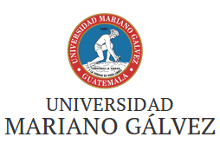2019 Finalist
Show me what you eat: Assessing diets with images
Guatemala
Show me what you eat: Assessing diets with images will assess the use of meal pictures taken with a smartphone on a daily basis to measure overall dietary quality and dietary diversity patterns in Guatemala. Compared to standard, short-recall period dietary questionnaires, meal pictures can provide real-time, detailed food intake information over an extended period of time. A more precise understanding of dietary habits can lead to individually-tailored interventions that promote healthier diets, especially among the most vulnerable, including women and children.
Detailed dietary intake information is crucial to design policy interventions to improve nutritional outcomes of populations in need. Collecting this information through regular household surveys is very costly and time consuming, and the depth of detail obtained is typically limited. To overcome some of these challenges, dietary diversity indicators, such as the number of different food groups consumed over a given reference period, are commonly used as an attractive proxy of diet quality. While positively correlated with micronutrient density and adequacy of diets (e.g. caloric and protein adequacy, high-quality protein from animal sources), they typically focus on the previous 24 hours to minimize recall error, do not capture quantitative dimensions of diets, and may become less reliable in terms of intra-household food distribution.
The project proposes to assess the use of day-to-day meal pictures taken directly by households to capture broader dietary patterns. Meal pictures can offer rich food consumption information in a simple and immediate manner, and over an extended period of time at a low cost. Such data can shed light not only on the variety of food groups consumed but also on estimated quantities for each group. Similarly, pictures of individual plates from different household members can reveal intra-household food distribution, with particular interest in women in reproductive age and young children. This information can eventually be tapped to design tailored interventions to promote healthier diets that can be implemented directly through cell phones, creating a two-way communication channel.
Partners
E3 Nutrition Lab
The Inspire Challenge is an initiative to challenge partners, universities, and others to use CGIAR data to create innovative pilot projects that will scale. We look for novel approaches that democratize data-driven insights to inform local, national, regional, and global policies and applications in agriculture and food security in real time; helping people–especially smallholder farmers and producers–to lead happier and healthier lives.






